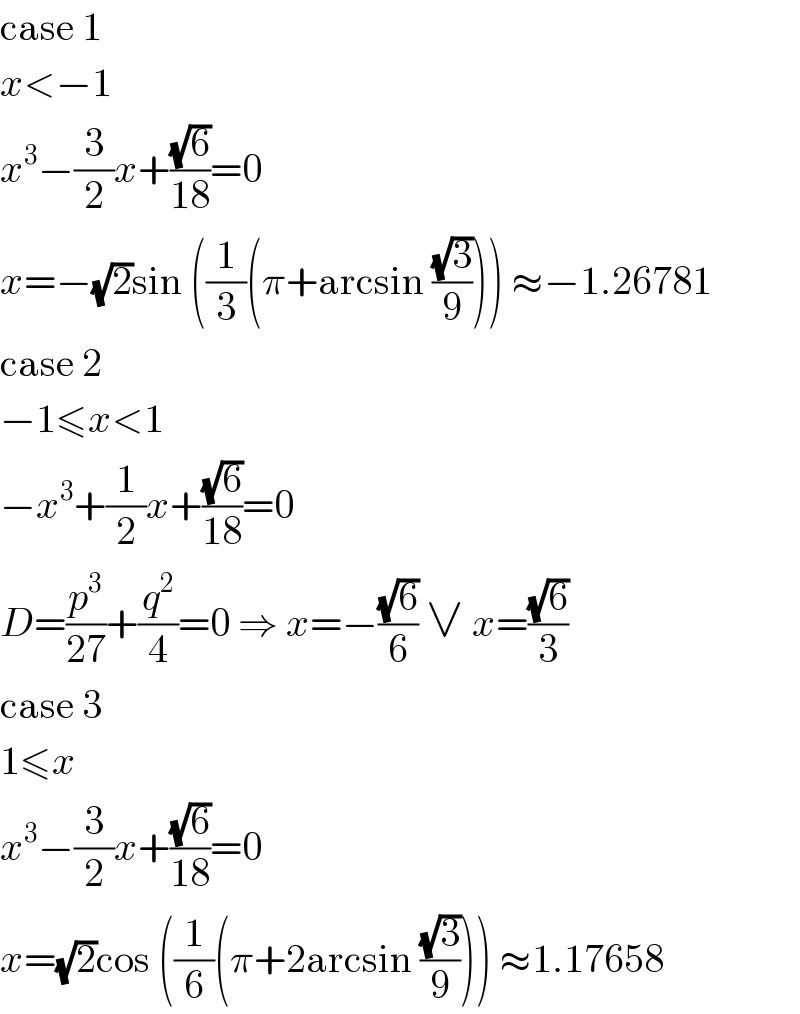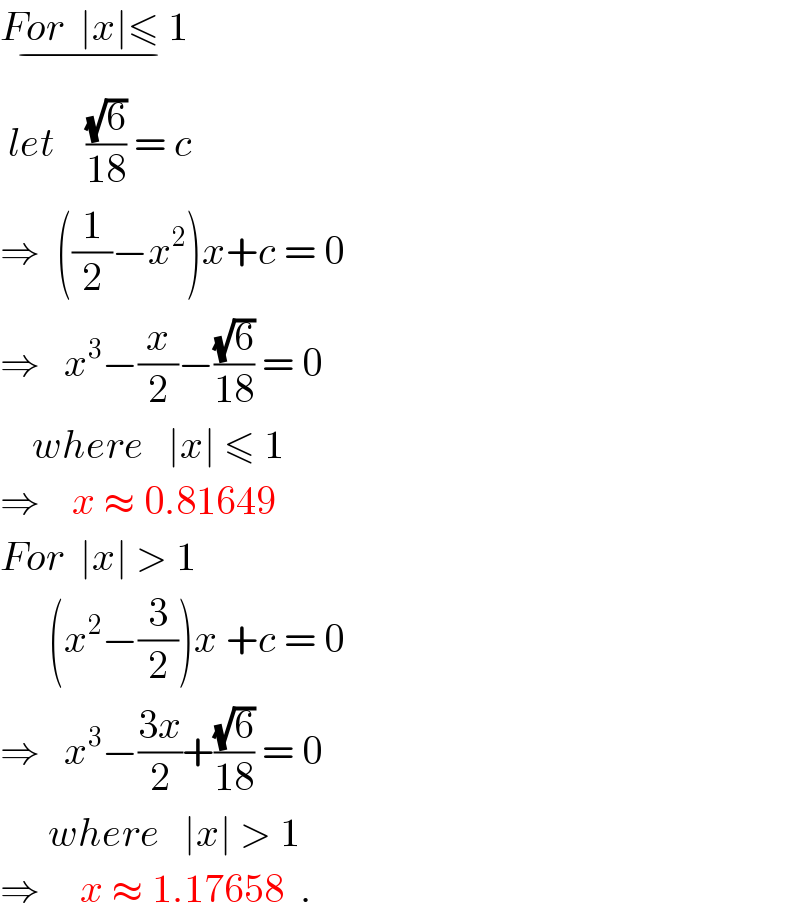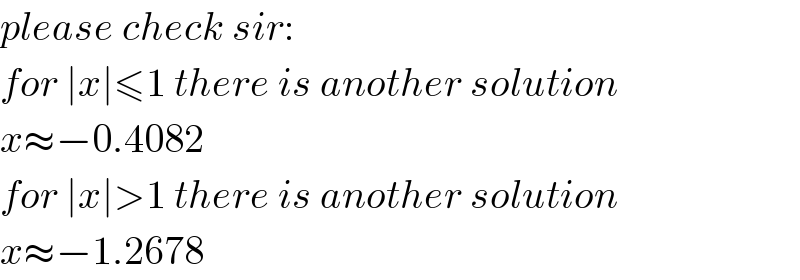
Question and Answers Forum
Question Number 48075 by MJS last updated on 19/Nov/18

Commented by MJS last updated on 19/Nov/18

Answered by ajfour last updated on 19/Nov/18

Commented by mr W last updated on 19/Nov/18

Commented by ajfour last updated on 19/Nov/18

